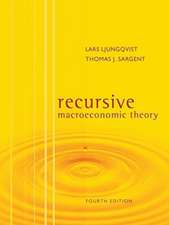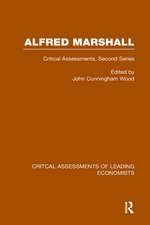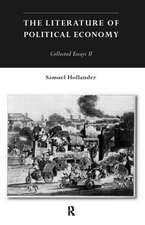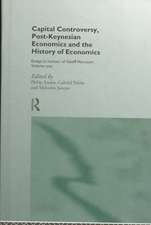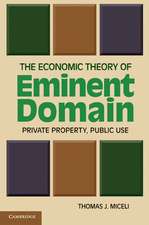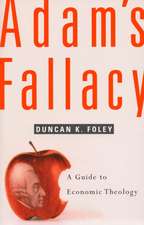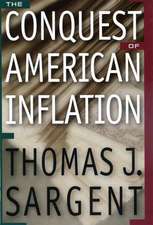Recursive Models of Dynamic Linear Economies
Autor Lars Peter Hansen, Thomas Sargent, Thomas J. Sargenten Limba Engleză Hardback – 27 ian 2014
present examples from microeconomics, macroeconomics, and asset pricing. The models are cast in terms of a representative consumer. While Hansen and Sargent demonstrate the analytical benefits acquired when an analysis with a representative consumer is possible, they also characterize the
restrictiveness of assumptions under which a representative household justifies a purely aggregative analysis.Hansen and Sargent unite economic theory with a workable econometrics while going beyond and beneath demand and supply curves for dynamic economies. They construct and apply competitive
equilibria for a class of linear-quadratic-Gaussian dynamic economies with complete markets. Their book, based on the 2012 Gorman lectures, stresses heterogeneity, aggregation, and how a common structure unites what superficially appear to be diverse applications. An appendix describes MATLAB
programs that apply to the book's calculations.
Preț: 444.28 lei
Nou
Puncte Express: 666
Preț estimativ în valută:
85.02€ • 88.44$ • 70.19£
85.02€ • 88.44$ • 70.19£
Carte tipărită la comandă
Livrare economică 12-26 aprilie
Preluare comenzi: 021 569.72.76
Specificații
ISBN-13: 9780691042770
ISBN-10: 0691042772
Pagini: 424
Ilustrații: 20 line illus.
Dimensiuni: 183 x 255 x 31 mm
Greutate: 0.93 kg
Editura: Princeton University Press
Locul publicării:Princeton, United States
ISBN-10: 0691042772
Pagini: 424
Ilustrații: 20 line illus.
Dimensiuni: 183 x 255 x 31 mm
Greutate: 0.93 kg
Editura: Princeton University Press
Locul publicării:Princeton, United States
Descriere
Demonstrates the analytical benefits acquired when an analysis with a representative consumer is possible, they also characterize the restrictiveness of assumptions under which a representative household justifies a purely aggregative analysis.




